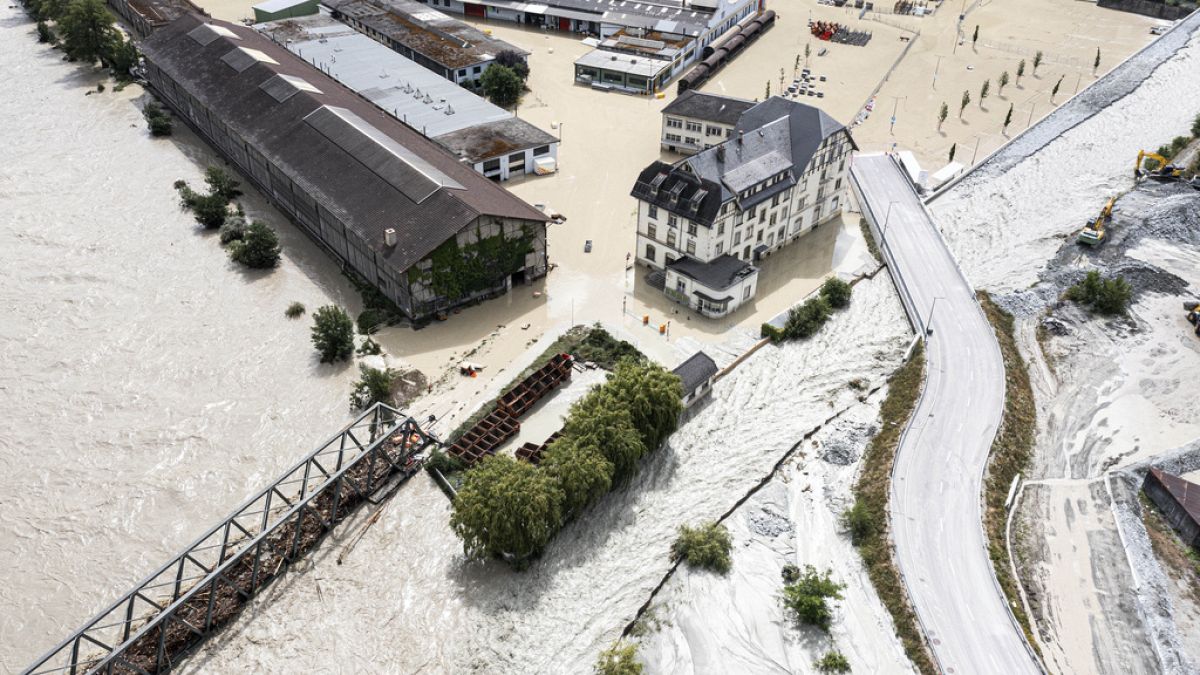Severe weather in Switzerland has caused significant damage to infrastructure and led to at least four deaths, prompting concerns about the country’s ability to withstand future storms. Swiss Federal Council member Ignazio Cassis expressed worries about the rising frequency of such extreme events and the vulnerability of the country. The recent extreme weather events in Switzerland have left a devastating impact, with landslides and flooding causing casualties and property damage.
In the aftermath of the severe weather, authorities in Switzerland are assessing the extent of the damage and responding to the immediate needs of the affected communities. Evacuations have been conducted in camping sites along the Maggia River, and a man has been reported missing in the village of Binn. The collapse of the Visletto road bridge and flooding in various areas have added to the challenges faced by the country following the extreme weather events.
Swiss President Viola Amherd has urged citizens to prioritize their safety and adhere to the instructions provided by the authorities. The situation in Switzerland remains tense as the cleanup and recovery efforts continue in the affected regions. The head of Cantonal Police Ticino, Antonio Ciocco, has acknowledged the possibility of additional victims due to the severity of the weather conditions in Ticino.
The impact of the severe weather in Switzerland is not limited to the country alone, as neighboring European nations have also been affected by the adverse weather conditions. In northern Italy, firefighters have conducted numerous rescue operations following floods, thunderstorms, and landslides. The town of Cogne saw the evacuation of at least 200 people as a result of the extreme weather events.
With climate change contributing to more frequent and intense weather events, countries like Switzerland must prioritize resilience and preparedness to mitigate the impact of such disasters. The recent events have underscored the importance of proactive measures to address the growing threats posed by extreme weather conditions. Ignazio Cassis’s concerns about the country’s ability to weather future storms serve as a call to action for Swiss authorities to enhance their disaster response and resilience efforts.
As Switzerland grapples with the aftermath of the severe weather events, the government and emergency response agencies are working tirelessly to provide assistance to the affected populations and restore normalcy in the impacted regions. The collaboration between local, regional, and national authorities will be crucial in addressing the immediate needs of the communities hit hardest by the extreme weather events and in building long-term resilience to future disasters. By learning from the recent experience and implementing effective risk reduction strategies, Switzerland can better prepare for and respond to future calamities.











